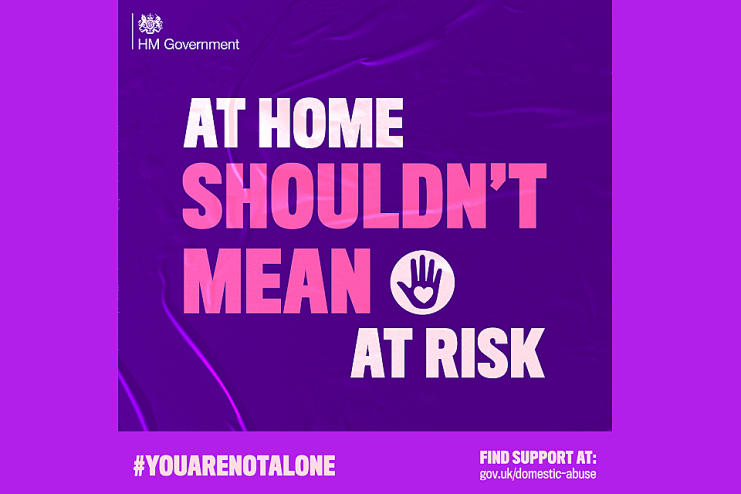Workplaces should be a lifeline for those suffering domestic abuse

At the start of the Covid-19 pandemic, we asked people to stay at home to protect themselves and others from the virus.
The home should be a safe haven. But for victims of domestic abuse, it can be a very dangerous place to be.
National abuse helpline Refuge reported a 25 per cent increase in calls during lockdown, as survivors were forced to spend more time indoors with their abusers.
Now, more than ever, it is important for us to do everything in our power to support all of those suffering domestic abuse.
The government has announced £76m to help support the most vulnerable, including domestic abuse survivors. And we have introduced a new Domestic Abuse Bill which will provide better support and protections for victims and ensure that perpetrators are brought to justice.
But we want go further — which is why we have launched a review of support in the workplace for survivors of domestic abuse.
While domestic abuse may occur in the home, its impact stretches into every aspect of survivors’ lives, with one in five needing to take time off work as a result.
And the same time, having a job and spending time away from abusers can offer a degree of independence and financial self-sufficiency, which is vital for those suffering from abuse. Crucially, it provides them with a network outside of the home that they can draw on for support, and the workplace can often be one of the few places in which many survivors feel safe to speak out about their experiences.
Ultimately, workplaces can provide vital support for those who have faced or continue to face domestic abuse.
Many employers across the UK are already doing a great deal to support survivors, ensuring they can report abuse and receive the help they need from their place of work. But this must be standard practice across the board.
This review will look at what new measures could be put in place in the workplace by the government or employers to help those experiencing domestic abuse. It will consider the availability of flexible working and unplanned leave for survivors, who often need the flexibility to deal with issues arising from domestic abuse, such as attending court hearings or looking after their mental health.
And it will also explore how employers can help tackle economic abuse, which is the exploitative practice by an abuser over the victim’s financial resources, stripping them of their independence.
Options could include paying wages to a different bank account or making emergency salary payments available for those in real financial hardship.
We are hosting our first roundtable and discussing these very issues today, with representatives from campaign groups, employer bodies, businesses and elsewhere, all with a major stake in ensuring that abuse survivors get the support they need.
Many workplaces are already leading the way on this. For example, in Northumbria, the Workplace Domestic Violence Champion scheme has seen around 400 public and private employers nominate “employee champions” in their team. This will encourage abuse victims or survivors to speak to a designated colleague if they feel unable or uncomfortable raising the issue with their manager or employer.
It is this kind of innovative, employer-led intervention that our review aims to draw on and promote.
As business minister, I want to see schemes like this become par for the course in workplaces of all sizes across the UK. To help us reach that goal, I am urging businesses, campaigners and survivors themselves to get involved in the Domestic Abuse Employment Review and tell us what changes they would like to see.
Britain’s workplaces have the potential to be a lifeline for those facing an unimaginable ordeal. Working together, we will build gold-standard employment practices that will ensure that all domestic abuse survivors have access to the support they need at work.
People are encouraged to share their views by visiting the consultation page here.
Main image credit: UK Government